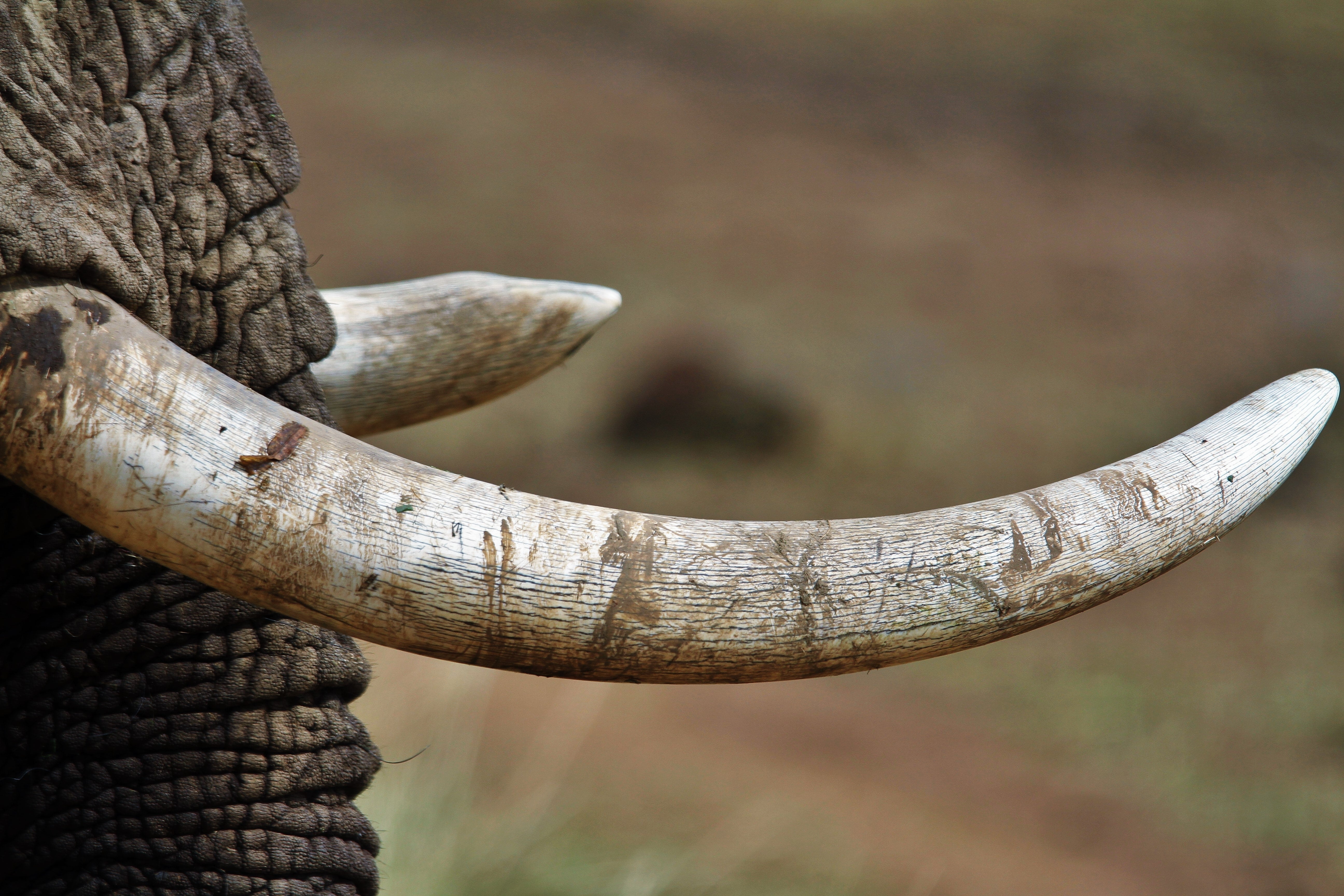Botswana calls for legalisation of ivory trade
Government insists markets exist to buy stockpiled tusks, to fund conservation and tackle human wildlife conflict

Your support helps us to tell the story
From reproductive rights to climate change to Big Tech, The Independent is on the ground when the story is developing. Whether it's investigating the financials of Elon Musk's pro-Trump PAC or producing our latest documentary, 'The A Word', which shines a light on the American women fighting for reproductive rights, we know how important it is to parse out the facts from the messaging.
At such a critical moment in US history, we need reporters on the ground. Your donation allows us to keep sending journalists to speak to both sides of the story.
The Independent is trusted by Americans across the entire political spectrum. And unlike many other quality news outlets, we choose not to lock Americans out of our reporting and analysis with paywalls. We believe quality journalism should be available to everyone, paid for by those who can afford it.
Your support makes all the difference.By Keletso Thobega for Botswana Guardian
Botswana has made a strong case at an international conference held in Zimbabwe’s Hangwe National Park in support of developing policy formulated to ensure that southern Africa countries are allowed to carry out legal trade of ivory.
The inaugural Elephant Summit opened in Zimbabwe on 23 May. The conference started off with deliberations geared at lobbying for support from the international community to allow for sale of ivory for economic benefit to countries and to also reduce ivory stockpiles that are piling up.
The conference is attended by 16 countries, as well as China and Japan. Zimbabwe has threatened to quit CITES if legal ivory sales is not allowed, and it is believed that other southern African countries, including Botswana, would follow suit.
Zimbabwe, which forms part of the Kavango Zambezi Transfrontier Conservation Area ( KAZA), of which Botswana is a member, has argued that its elephant population is growing at a rate of five to eight percent, which is unsustainable.
Authorities added that proceeds from the sale would help manage the fast growing population, which if not controlled, could reach “dangerous proportions.”
A statement from 50 wildlife and animal rights organisations, which was released on Monday, ahead of the conference insists that opening trade of ivory would encourage poaching, and perpetuates the notion that “elephants are mere commodities and that ivory trade could resume, which would spark a sharp escalation in poaching.”
CITES banned trade of ivory in 1989, in efforts to curb poaching. At the conference, opposition is from largely East and West Africa countries - they are part of the Africa Elephant Coalition, who maintain that opening the legal trade of ivory would encourage and increase poaching.
Botswana has a strong voice too, considering that it is home to the highest elephant population in the world, approximately 130,000. Botswana and Zimbabwe are home to 50 percent of the world’s elephant population.
Speaking to this publication on May 25 from the conference, Director of the Department of Wildlife and National Parks, Kabelo Senyatso, noted that Botswana has a firm stand when it comes to ivory sales.
“We stand in solidarity with SADC member states that hold loads of ivory in stockpiles which are not of any benefit to us. I must emphasise that Botswana does not intend to burn them; we prefer the opening of legal trade channels,” he said.
He explained that the ivory from the special elephant quota, for example, is currently in safe custody as the country continues its campaign to lobby the opening of ivory trade.
He said that Botswana set up the Conservation Trust Fund, which they hope would also benefit from proceeds from the legal ivory sales.
The Conservation Trust Fund was established to benefit communities in elephant range areas by offering grants of up to one million Pula (£66,000) directed at initiatives that bolster their livelihood, and to secondly, support initiatives geared at the conservation of elephants. The Conservation Trust Fund was established from proceeds of the 1999 once-off ivory sale.
Senyatso insisted that there is a market to sell the ivory stockpiles. “The fact that there is a huge market of illegal ivory trade is an indicator that there is a huge lucrative market. We want the sale of ivory to be legal and regulated. The proceeds from these sales would greatly benefit the Government and contribute to funding initiatives aimed at improving the livelihoods of the people of Botswana.”
This article is reproduced here as part of the African Conservation Journalism Programme, funded in Angola, Botswana, Mozambique, and Zimbabwe by USAID’s VukaNow: Activity. Implemented by the international conservation organisation Space for Giants, it aims to expand the reach of conservation and environmental journalism in Africa, and bring more African voices into the international conservation debate. Read the original story here.
Join our commenting forum
Join thought-provoking conversations, follow other Independent readers and see their replies
Comments